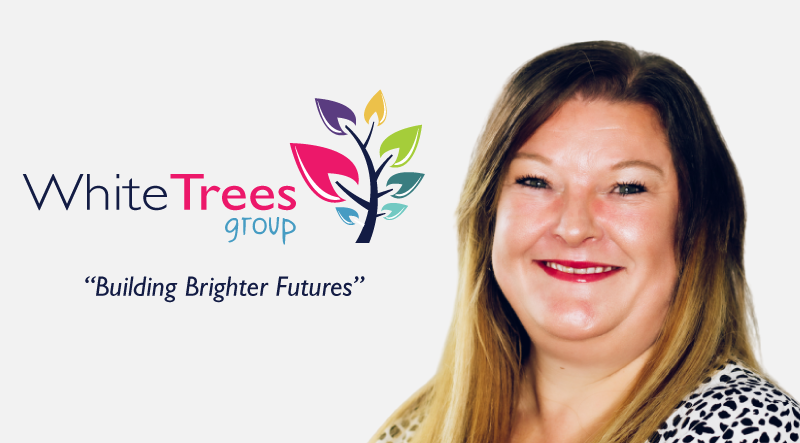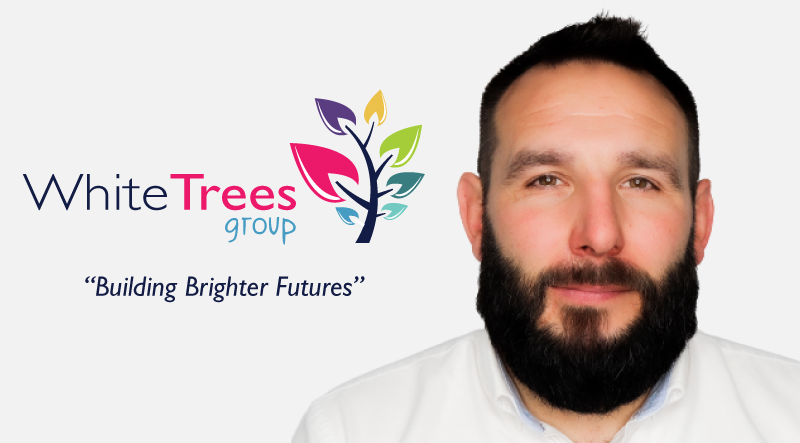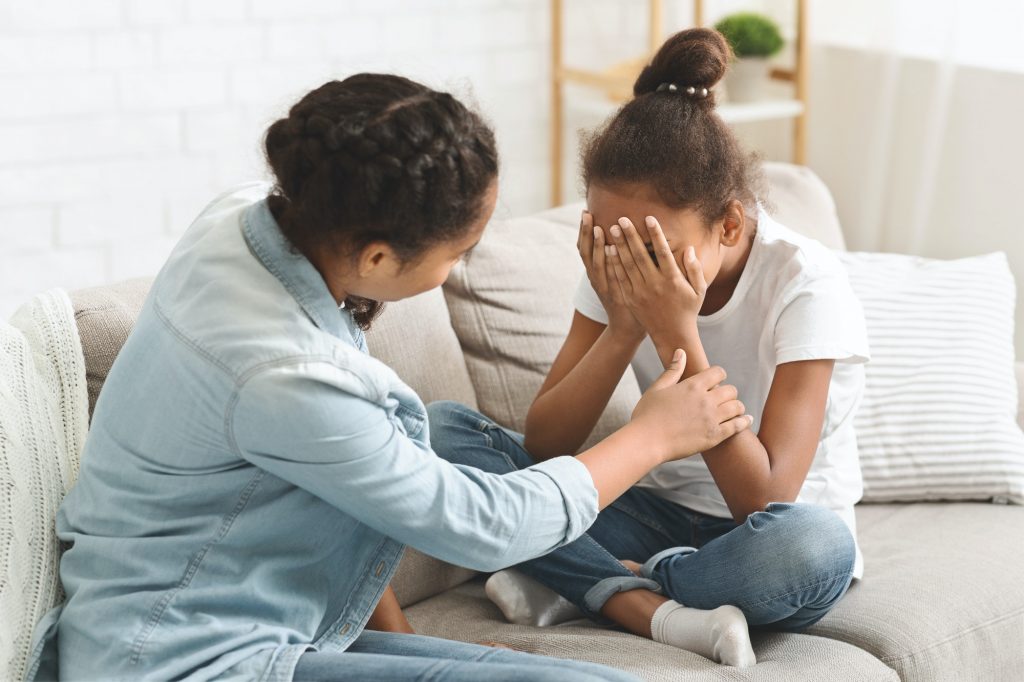
Welcome To
WhiteTrees-Surecare Residential
We are an Ofsted ‘Good’ Provider

Director of Children’s Services
Ayshea Praide
As the head of residential services, I am proud to oversee a team of dedicated individuals who have chosen to share their passion and privileged skillset in supporting and delivering the highest level of child-focused care to our young people ensuring a structured and safe environment where they can thrive.
Right from the outset, it has been our goal to help young people to whom life has presented more challenges than solutions. Our aim is to enable children and young people to overcome their difficulties and progress towards greater fulfilment in their life.

Placements Manager
Danny Elliot
Danny joined White Trees Group in 2017 as a Registered Manager to open our fourth home, Pathways.
With the many years of experience that Danny has gained in the care sector working as a Registered Manager as well as within the Local Authority Placement Services for The London Borough of Newham, he has not only brought an extensive knowledge of the care system to help drive our service forward, but he has also brought a further understanding and perspective of what Local Authorities expect from us a care provider.
Fantastic feedback from a Social Worker
“The referral process was very positive; my young person was very anxious about coming into care. The Manager and the staff went above and beyond to meet them and help to reassure them, travelling down to meet her and her mother. This was really supportive and meant that they had a familiar face when they moved in.”
Social Worker, Jan 2024
Our Therapeutic Ethos
Our approach puts our young people at the centre of all care planning from the initial referral and transition process through to admission of placement and duration of their time at WhiteTrees-SureCare. This is to ensure that each child can express themselves with advocacy if needed. We believe that young people treated within a warm and positive family environment and given privacy, safe risk taking, freedom and choice will flourish and in return be more likely to invest in our service provision and in their individual care planning.
WhiteTrees – SureCare children’s homes each have a team of highly skilled and well-qualified professionals across the workforce, trained to deliver therapeutic residential childcare. They have all the necessary experience to support a wide range of emotional, behavioural & social difficulties including attachment disorders, sexualised behaviour, offending and missing behaviours/associated risks with exploitation.
A career in children’s residential is both rewarding and challenging, We completely invest in our staff offering appropriate forums to support their performance and practice from our training programme, continuous professional development, individual reflective supervision process both within line management and a therapeutic option and therapeutic peer consultations to name a few.
Our achievements and outcomes are supported by a therapeutic model of work, which covers all aspects of the individual child’s psychology from attachment to trauma with regular clinical input from our team of psychologists. For the therapeutic models and interventions please refer to our Well-being section.
The White Trees Group has been committed to providing compassionate and effective childcare over the last decade. We recognise that caring for children who have experienced extreme trauma in their young lives is a challenging and complex responsibility. Looked after children and those who are accommodated can feel abandoned or have little choice in where they are placed. The heart of our approach is the creation and sustaining of a safe environment for each child which we achieve through our therapeutic model of care.
As a child or young person is admitted into the residential care service, the change will feel daunting and uncertain, therefore the initial approach and support for each young person begins with the key worker and the consistent approach and structure within the home environment from the very first impression. Our understanding and belief is that each young person will benefit from building a safe, secure, trusting relationship with one or a few named individuals rather than expecting them to manage multiple relationships as soon as they arrive into the new surroundings.
Providing a safe structured and emotionally containing provision for our young people is paramount. As a child feels safe, they will then begin to trust and invest in relationships and the care plan in place.

Our homes reflect our therapeutic ethos, decorated and designed with the young people’s consultation to encourage them to invest and feel that they have a sense of belonging in the home. Photos and personal belongings and items such as games, books and furnishings are included in the design of the home’s décor and thus, developing and building the sense of home and feeling of inclusion. Their individual bedroom is a personal space, which they can personalise to create a safe area where they feel comfortable and can enjoy spending time. Mealtimes are a structure of the home where we believe to be a pivotal social point where, together the peer group can talk about their day and to share information & experiences about their day and to plan what they would like to do within the home.
Consistent planning and implementation of boundaries are routine to support and nurture the unmet needs of the children. Regular multi-agency consultation and communication is imperative to successful care planning with all external and community professionals involved in the young people’s care planning and safety needs, as is internal communication and forums offered in the structure of regular house meetings, key work sessions, care plan review and management consultations are all in place to maintain a culture of containment, development and progression to achieve positive outcomes for each young person placed.
Pathfinders are our therapeutic behaviour modification plan in place for each young person to engage in changing behaviours that challenge and for young people to have ownership with an incentive based plan created on a points system and one that can offer young people involvement in making positive choices and adaptions to transfer such skills into their adulthood. These plans have proven successful and integral for young people in their journey to their brighter future.
Ayshea Praide
WhiteTrees Group Director of Children’s Services
Our role in the WhiteTrees Group
WhiteTrees Residential is the hub of our care service and along with our schools forms the core of our business, we provide for the young people’s needs whilst they are with us.
Services we provide
We Specialise in providing;
- Short to long term specialist residential placements for children aged 7 to 18 years of age
- Observation and Assessment of every child’s specific specialist needs
- Access to various types of Therapy through WhiteTree’s Therapeutic and Well-Being Service
- 1:1 Support if and when required
- Family Support, the promotion of meaningful contact and advocacy
- Semi and Full Independence Programmes
Supporting Young People with;
- Social, Emotional and Behavioural Difficulties (SEBD)
- Mild to Moderate Learning Difficulties which include ASD and Global Developmental Delay
- Emerging concerns around their vulnerability to Child Sexual Exploitation (CSE)
- Emerging concerns around their vulnerability to Child Criminal Exploitation (CCE)
- Orders under the Mental Health Act
- History of Self-Harming Behaviour
- Missing Behaviour
- History of Anti-Social and Criminal Behaviour
- History of Gang involvement which includes County Lines
- Eating Disorders
- Low Self-Esteem, Confidence & Anxiety
- Gaps in their Academic and Social Development
A Young Person’s Typical Day at WhiteTrees–SureCare Residential
Each resident has their own bedroom where they can have their own possessions and personalise their space.
Each morning the young people are supported by key workers to wake and rise. For many of our young people, bed can be a sanctuary, especially if they are worried, upset or not happy with life, so that the process of getting out of bed can be quite traumatic. Waking and preparing the young person so that they are ready and positive about going to school or about their day is an important start.
Once our young people are gently woken, we then encourage them to shower in preparation for the day. Staff will then sit with them and have breakfast before they are transported to school (if a weekday) or plan activities with them for the weekend and school holidays.
During non-school times our young people will enjoy leisure activities, free time, life skills and hobbies/developing social interests and integrating as part of the wider community. They will also be supported by staff who will help with home contact visits if young people have an agreed contact plan to see family, friends or significant people in their lives.
Lunch times may be staggered depending on whether all young people are in or out of the home.
The afternoons can be both the most difficult and the most productive and enjoyable times. Our young people are encouraged to take part in outdoor activities, and they are also supported to understand the need for structure and stability in planning their free time. Time between finishing school and the journey home is a legitimate time to let off steam and discuss their day.
Teatime is usually between 5pm and 6pm. This is a cooked meal prepared by staff with input from young people and from a pre-planned menu. Mealtimes are when we encourage all young people and staff to sit and eat together at the communal table and discuss their day, plan the evening, interact socially and then to support each other to clear the table once finished.
From 6.00p.m. to bedtime (times may vary due to age), this is what we call “free time”, when the children and young people can socialise with their peers and staff. Staff can spend time listening and working with individuals on care plans or simply talking through concerns or the events of the day. Free time does not mean unstructured time as planning is key in a successful day within our residential environment.
To end the day young people have assigned bedtimes, these may vary with age. Bedtime can be an anxiety provoking time and staff are there in support for all our young people.
Settling time is a key therapeutic tool at SureCare. Young people will have the time with allocated staff to unwind, watch TV in their room, talk, read a story or chill and prepare for bed. A young person may have additional resources to support their sleep and settling, such as music, or a night light.

Therapeutic project workers or Key workers
These are important members of the team being constantly around the children and meeting regularly with their “Key Child” to put in place strategies and coping mechanisms which help manage feelings and anxieties appropriately.
Key workers are at the core of recognising the importance of putting the child first. Encouraging and supporting “first” experiences, going on holiday and sending a postcard, creating memories with young people that will be celebrated and shared. Working as a team around the child with a wider group of professionals, so that the young person is clear in their plans for the future. Our ethos and approach stem from a passionate and committed workforce who encourage the young people to not just survive but thrive.
To find out more about our approach to Wellbeing…
Admission Process to WhiteTrees Residential
WHITETREES-SURECARE RESIDENTIAL ADMISSIONS PROCESS

PHASE 1
‣ Placing Authority make contact with the Area Manager to discuss current vacancies and to provide an initial referral regarding a young person requiring a Placement.
‣ Following a review of initial referral, a request for further information is sent to the Local Authority in order to gain further in depth understanding of the young person’s needs, behaviours and any associated health needs and risk-taking behaviour.
‣ Information is sent to the Local Authority about the homes that could potentially be considered along with information about White Trees Independent School and our Therapeutic Services.
‣ Once all the information received has all been reviewed by the Area Manager, the information is then sent onto the Management of any potential home being considered for a full review.
‣ A further review and consultation between the Homes Management and Area Manager will then be undertaken; Using the knowledge of the current residents, the skills of the staff and the local area in which the home is located, an initial “Matching Assessment” will look at the suitability of what any of our homes can offer against the needs of the young person.
‣ Care Plans, Risk Assessments, Behaviour Management Plans will all be considered along with what arrangements would need to consider for the young person’s Education, any Health needs and contact with family if a placement were to be offered.

PHASE 2
‣ Consultations with any and all professionals, significant persons and family where appropriate will then be undertaken in order to clarify the information provided in all the documentation provided as well as gaining a more comprehensive insight into the young persons behaviour, personality and feelings.
‣ Further review of all the information gathered and collated before and further review of the Matching Assessment.
‣ Further consultation between Homes Management, Area Manager and Local Authority to discuss possible Care Plan, Risk Assessment and Transition Plan.
‣ Complete the Matching Assessment.
‣ Proposed plans presented and explored with Local Authority.
‣ Offer of placement.

PHASE 3
‣ Finalise and initiate transition plan with the Local Authority, current carers and family where appropriate.
‣ Provide all the relevant information to the staff.
‣ Consultation with current residents.
‣ Prepare room.
‣ Arrange visits to meet the young person.
‣ Facilitate visit from the young person and where appropriate, their family.
‣ In some cases where it’s felt beneficial, arrange an overnight stay.
‣ Inform local police and health services of the imminent arrival of a new young person to the home.
‣ Young person is moved into the home and presented a welcome gift.
‣ Placement Planning Meeting undertaken on the day of admission.
Working with us
We are constantly looking for good team members to join WhiteTrees. Your working journey can be as varied as you like and span a whole range of job functions within our group disciplines.
We encourage self-development and progression through a mentoring program and provide a structure of learning that we support and reward once the various levels are achieved.
To find out more about working at WhiteTrees and available roles.
